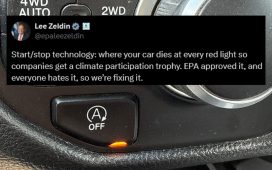THE HOUSE AND SENATE: Beacon Hill Roll Call records local senators’ votes on the only roll call from the week of May 5-9. There were no roll calls in the House last week.
$1.3 BILLION FOR TRANSPORTATION AND EDUCATION (S 2512) – Senate 40-0, approved a $1.3 billion supplemental budget that uses funds generated from the recent surtax imposed on taxpayers’ earnings of more than $1 million annually, to fund $617 million for education-related projects and $670 million for transportation-related ones. The House has already approved its own version of the budget and a House-Senate conference committee will hammer out a compromise version that will be sent to Gov. Maura Healey.
The surtax was created by voters in November 2022 when they voted for a constitutional amendment, dubbed by supporters as the “Fair Share Amendment,” that allows a graduated income tax in Massachusetts and imposes an additional 4 percent income tax, in addition to the flat 5 percent one, on taxpayers’ earnings of more than $1 million annually. Language in the constitutional amendment requires that “subject to appropriation, the revenue will go to fund quality public education, affordable public colleges and universities, and for the repair and maintenance of roads, bridges and public transportation.”
A total of $370 million of the $670 million for transportation will be used for various MBTA projects.
The $617 million for education includes $248 million for special education; $190 million for higher education; $50 million for local school construction; $25 million for literacy growth; $100 million for Career Technical Education Capital Grants; and $10 million for English Language Learning Programs.
Senators had filed 317 amendments to the budget but there were no roll call votes on any of the individual amendments. Instead, the Senate approved or rejected some individual amendments, some with debate and some without debate, on unrecorded voice votes which do not allow the public to see how individual senators voted.
To move things along even faster, the Senate also did its usual “bundling” of many amendments. Instead of acting on each amendment one at a time, dozens of the proposed amendments are bundled and put into two piles — one pile that will be approved and the other that will be rejected, without a roll call, on voice votes where it is impossible to tell which way a senator votes.
Senate President Karen Spilka, or the senator who is filling in for her at the podium, orchestrates the approval and rejection of the bundled amendments with a simple: “All those in favor say ‘Aye,’ those opposed say ‘No.’ The Ayes have it and the amendments are approved.” Or: “All those in favor say ‘Aye,’ those opposed say ‘No.’ The No’s have it and the amendments are rejected.”
Senators don’t actually vote Yes or No, and, in fact, they don’t say a word. The outcome was predetermined earlier behind closed doors.
“This bill answers the clear message that our residents sent us in 2022 — to invest these dollars across the state to continue building the high-quality education and transportation systems Massachusetts deserves,” said Senate President Karen Spilka (D-Ashland). “At a time of economic uncertainty, we are committed to supporting our schools and making sure that residents can travel safely, and these Fair Share funds allow us to do that.”
Although no senators voted against the budget, there was opposition to it from outside the Senate.
“The Senate’s $1.3 billion supplemental budget is yet another example of Beacon Hill’s addiction to unchecked spending,” said Paul Craney, executive director of the Mass Fiscal Alliance. “Instead of showing restraint or using this opportunity to reform broken systems like the MBTA, lawmakers are rushing to shovel taxpayer money into a badly mismanaged MBTA that is riddled with inefficiency. Voters were told surtax revenue would be used responsibly — this bloated bill proves otherwise. Massachusetts taxpayers deserve accountability, not another blank check for Beacon Hill’s failures.”
“I’m pleased the Senate has passed this Fair Share supplemental budget, prioritizing regional equity while also maintaining fiscal integrity during these highly uncertain times,” said Sen. Mike Rodrigues, (D-Westport) Chair of the Senate Committee on Ways and Means. “By utilizing almost $1.3 billion in one-time surplus surtax revenues, the proposal strengthens the commonwealth’s economic foundation by making meaningful investments in education and transportation. This budget plan reaffirms the Senate’s strong commitment to educational excellence, provides significant resources for special education and makes substantial investments in our transportation infrastructure. It goes above and beyond to give everyone a ‘fair share.’”
“Amid waves of uncertainty at the national level and devastating federal cuts, the Massachusetts Senate answered the call of residents to use surplus Fair Share Amendment funds to invest equitably in education and transportation across the commonwealth,” said Senate Ways and Means Vice Chair Jo Comerford (D-Northampton). “The Senate bill passed today will provide transportation solutions for small, rural towns, will begin addressing the debilitating backlog of deferred maintenance on public higher education campuses, will provide meaningful help to school budgets pushed to the breaking point, and more.”
Also up on Beacon Hill
RECOGNIZE HIGH SCHOOL CHEERLEADING AS A SPORT (H 639) – The Education Committee held a hearing on legislation that would designate and treat high school cheerleading as a legitimate sport and have it governed by the Massachusetts Interscholastic Athletic Association (MIAA) which currently governs 19 other high school sports.
“Cheering is a highly competitive and athletically challenging sport,” said sponsor Rep. Marc Lombardo (R-Billerica). “It should receive the same recognition and resources as any other sport in the commonwealth and as such, needs to be classified properly.”
Supporters said that Bay State high school cheerleading is currently governed by the Massachusetts Schools Administrators’ Association which only supports Cheer/Game Day, Dance and eSports. They argued it would be more appropriate to have the MIAA run and support this highly athletic and competitive sport.
THE BEAN NEW DEAL (S 922) – The Higher Education Committee held a hearing on a bill, dubbed the Bean New Deal, designed to help more people understand the climate, health and environmental benefits of diets that involve plant-based protein sources, whether exclusively or just occasionally. It also would ensure that public food establishments and public programs provide access to plant-based protein sources to those who want them.
Provisions include ones that would require all state dining halls, cafeterias and canteens to provide at least one plant-based protein source with every meal; ensure that all culinary arts programs at public institutions of higher education provide instruction about plant-based protein sources; direct the Department of Elder Affairs to offer plant-based protein sources to low-income seniors who participate in the Senior Nutrition Program; direct the Department of Elementary and Secondary Education (DESE) to offer voluntary training and resources concerning plant-based protein sources to organizations participating in the National School Lunch Program and other food programs it oversees; and direct DESE, in awarding food-related grants, to consider whether proposals will increase awareness of and access to plant-based protein sources.
“Eating more plant-based proteins is beneficial to human health, to the climate and to the environment, but many of us don’t know about those benefits and don’t have access to healthy options like beans, lentils, whole grains, nuts and chickpeas,” said sponsor Sen. Cindy Creem (D-Newton). “I filed the Bean New Deal legislation to promote awareness of the benefits of plant-based eating and to increase access to plant-based options at public institutions and within public nutrition programs. Massachusetts residents should be able to choose food options that foster healthier communities and promote sustainability. This bill would give them that choice.”
GIVE HIGH SCHOOL STUDENTS COLLEGE CREDITS FOR HIGH SCORES ON ADVANCED PLACEMENT PLANS – Another proposal heard by the Higher Education Committee would direct the Department of Higher Education to establish regulatory standards allowing high school students who have achieved a score of 3 or higher on their Advanced Placement (AP) exams to receive college credit at Massachusetts’ state universities.
“The American Council on Education and the College Board both recommend granting college credit to students who score a 3 or higher on their AP exam because those who achieve a score in this range are generally more prepared for subsequent coursework than students who only completed the introductory course and did not take the exam,” said sponsor Rep. Brad Jones (R-North Reading). “Providing college credit for AP classes taken in high school allows students to be rewarded for their hard work by giving them much more flexibility to pursue a double major or study abroad, provides a less confusing college application process by setting a uniform standard and saves students tuition money due to the reduced number of classes they have to take.”
BAN HOTELS FROM PROVIDING PLASTIC-PACKAGED TOILETRIES TO GUESTS (S 609) – The Environment and Natural Resources Committee held a hearing on legislation that would ban, beginning in January 2027, hotels, motels and boarding houses from providing small plastic-packaged toiletries to guests. Toiletries are defined as a product provided by a hotel “intended to be applied to or used on the human body or any part thereof for cleansing, conditioning or moisturizing including, but not limited to, shampoo, conditioner, lotion and liquid soap.”
“For healthier people and a healthier planet, it’s important that we continue shifting away from using plastic materials,” said sponsor Sen. John Keenan (D-Quincy). “Their production and disposal contribute to greenhouse gas emissions, their usage leads to microplastic contamination and they continue to be among the most harmful materials littered through our neighborhoods and our natural resource areas. Because there are logical, less harmful and even more convenient ways to provide shampoos, soaps and the like at hotels, banning the plastic packaging in this one area is an important, incremental step towards a healthier future.”
BAN USE OF HELIUM BALLOONS (H 996) – Another bill heard by the Environment and Natural Resources Committee would ban the intentional release in the air of any type of balloon that is filled with helium or any other type of gas that is lighter than air. First-time offenders would be fined $100 and an additional $100 per ten balloons released. Subsequent violations would be fined $500 and an additional $100 per ten balloons released.
The ban and fines would not apply to balloons released by or on behalf of a state agency or the United States for scientific or meteorological purposes; hot air balloons that are recovered after their launch; and balloons released by a person under the age of 12.
The state would also be required to prepare and make available to retail distributors of balloons notice of this new law and information about the harmful effects of releasing balloons into the environment. The notice must be available in English and in any other language spoken by at least ten percent of the Massachusetts population.
Supporters noted that the idea for this bill was first presented by the Provincetown Elementary School 3rd grade class. They said that balloons present a threat of entanglement and ingestion to birds, marine life and mammals.
“I sponsored this bill which was previously filed by former Rep. Sarah Peake, with the hope that Massachusetts will follow other states, towns and cities in addressing this environmental waste danger,” said sponsor Rep. Hadley Luddy (D-Orleans). “I look forward to working with the committee to move this legislation forward.”
ALLOW LEGAL NON-CITIZENS TO VOTE IN CITY AND TOWNS ELECTIONS (H 855) – The Elections Laws Committee held a hearing on a measure that would allow legal non-citizens over the age of 18 to vote in local municipal elections, participate and vote in town meetings and to run for municipal office.
Sponsor Rep. Samantha Montano (D-Boston) said this new law would apply to legal non-citizens including Green Card holders and students with visas. “Immigrants are productive members of Massachusetts and should be able to take part in the political activities of their municipalities,” said Montano. “These are documented individuals who pay taxes that directly support their municipal infrastructure. Many parents with immigrant backgrounds aren’t able to participate or aid in their children’s educational experience outside of providing testimony. Additionally, in municipalities that are heavily populated by specific ethnicities, such as the Brazilian population in Framingham or the Cape Verde population in Brockton, this legislation would give these groups proper representation.”
“Currently, immigrant populations are being attacked,” continued Montano. “As such, it is important now more than ever to give these documented populations a voice. This country was founded by immigrants and is rich in cultural diversity because of it.”
ALLOW 16-AND 17-YEAR OLDS TO VOTE IN LOCAL ELECTIONS (H 813) – Another proposal heard by the Election Laws Committee would allow 16- and 17-year-olds who are U.S citizens to vote in city and town elections. It also allows them to vote in any presidential primary if the political party for which a presidential primary is held consents to the participation of 16- and 17-year-olds.
Sponsor Rep. Mike Connolly (D-Cambridge) said that 16- and 17-year-olds can drive, work local jobs and pay taxes, and have a stake in our education and public safety systems. He noted that when this group votes, there will be a “trickle up” effect on civic participation.
“When 16- and 17-year-olds engage in civics, conversations about politics and local issues are brought to the dinner table,” said Connolly. “Parents and family members are engaged in civic life through the 16- and 17-year-olds in their household, with a positive impact on voter turnout for people of all ages. Letting 16- and 17-year-olds vote in presidential primaries gives them a real stake in shaping the future leaders who will make decisions that directly affect their lives for years to come.”
OPEN CALL TO DESIGN THE STATE FLAG, SEAL AND MOTTO – The Massachusetts Seal, Flag and Motto Advisory Commission, established by the Legislature in 2024, launched an open call to artists, historians, educators, students and members of the public to participate in the effort to redesign the state’s flag, seal and motto.
“This is an exciting moment for Massachusetts,” said Education Secretary Dr. Patrick Tutwiler. “As we open the call for public submissions, we are inviting everyone across the commonwealth to help reimagine the symbols that tell our story. Our seal, flag and motto should reflect not just our history, but the vibrant, diverse community we are today – and the future we are building together. I can’t wait to see the creativity, ideas, and sense of belonging that people across Massachusetts will bring to this process.”
“We invite everyone, including artists, designers, culture bearers and community members, to contribute ideas that reflect who we are and who we strive to be,” said Kate Fox, Executive Director of the Massachusetts Office of Travel and Tourism and co-chair of the Advisory Commission. “It’s an opportunity to ensure that every community sees itself in our story.”
The Advisory Commission said it is seeking potential design elements that might include nature-based symbols native to Massachusetts, such as the right whale, a critically endangered species for which Bay State waters serve as a vital habitat, the eastern white pine or elm tree, and cranberries. Other potential design elements may include the geographic shape of Massachusetts and coastline imagery that reflects the state’s historical connection to the Atlantic Ocean and maritime industries. These examples are not intended to limit potential submissions. The Commission encourages and welcomes a broad range of designs that capture the full creativity of our citizens.
The deadline for submission is June 18. For more information and to submit your ideas, go to mass.gov/orgs/massachusetts-seal-flag-and-motto-advisory-commission
Quotable quotes
“The clean energy economy is growing fast and we need to make sure people across Massachusetts can take part in that growth. Today’s summit shows how powerful local collaboration can be. Together, we’re building training pathways that are not only relevant and responsive but also rooted in the needs and aspirations of our communities.” – Lt. Gov. Kim Driscoll on the Healey-Driscoll Administration awarding more than $7.3 million in grants to enhance workforce development in climatetech.
“Massachusetts isn’t just the best state to go to school or start your career – it’s also the best state to retire and live your happiest, healthiest life. But we know that far too many of our older residents are facing challenges, especially with affordability, housing and health care. To help ensure older adults in Massachusetts can live longer, healthier lives on their own terms, we are taking steps to make Massachusetts even more age- and dementia-friendly.” – Gov. Maura Healey signing an executive order and releasing a new age-friendly state plan which will outline improved ways for Massachusetts agencies to serve older adults, following feedback gathered from across the state.
“When pharmacies offer discounted drug pricing to its customers, they must also charge MassHealth that same low price. At a time when costs are sky-high, our taxpayers should not have to foot the bill for pharmacies’ inaccurate price reporting.” – Attorney General Andrea Campbell filing a lawsuit against CVS Pharmacy for charging MassHealth, the state’s Medicaid program, higher prices than they offered to the public for the same drugs.
“In the nationwide race to 100 percent clean and renewable energy, Massachusetts is running with the pack. Now it’s time to take the lead. Power from the sun and wind doesn’t pollute, never runs out and shows up for free. Renewable energy is an idea whose time has come.” – Johanna Neumann, Acting Director of Environment Massachusetts Research and Policy Center on a study that ranks the Bay State 5th in the nation for electric vehicle charging ports and 11th for solar generation, according to the online State of Renewable Energy 2025 dashboard.
How long was last week’s session?
Beacon Hill Roll Call tracks the length of time that the House and Senate were in session each week. Many legislators say that legislative sessions are only one aspect of the Legislature’s job and that a lot of important work is done outside of the House and Senate chambers. They note that their jobs also involve committee work, research, constituent work and other matters that are important to their districts. Critics say that the Legislature does not meet regularly or long enough to debate and vote in public view on the thousands of pieces of legislation that have been filed. They note that the infrequency and brief length of sessions are misguided and lead to irresponsible late-night sessions and a mad rush to act on dozens of bills in the days immediately preceding the end of an annual session.
During the week of May 5-9, the House met for a total of 10 minutes while the Senate met for a total of nine hours and 53 minutes.
Mon. May 5 – House: 11:01 a.m. to 11:05 a.m. Senate 11:05 a.m. to 3:18 p.m.
Tues. May 6 – No House or Senate session.
Wed. May 7 – No House or Senate session.
Thurs. May 8 – House: 11:05 a.m. to 11:11 a.m. Senate: 11:03 a.m. to 4:43 p.m.
Fri. May 9 – No House or Senate session.
Bob Katzen welcomes feedback at bob@beaconhillrollcall.com. Bob founded Beacon Hill Roll Call in 1975 and was inducted into the New England Newspaper and Press Association (NENPA) Hall of Fame in 2019.








